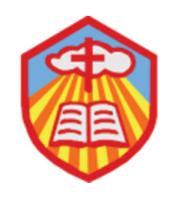| Language Policy |
Our school emphasizes bi-literacy and tri-lingualism. We have some F.1 to F.3 students to learn their major subjects in English. In order to further develop the English learning environment, we have extra manpower in native English teachers not only to co-teach with our local teachers but also facilitate our campus-wide English activities. The English Department also implements a range of language activities for students to extend their exposure to English and to experience English-speaking culture. Apart from our Lutheran-specialised "International Interface" programme, we are also having cross-cultural exchange programmes to Australia these years so that students can learn English authentically. To further develop student language ability, we also have classes in F.1 and 2 learning Chinese Language with Putonghua as the medium of instruction. |
| Learning and Teaching Strategies |
A number of F.1 to F.3 students learn major subjects in English. In senior secondary, small class teaching in core subjects is implemented while some elective subjects are taught in English. Self-directed Learning and eLearning are being adopted in different subjects in order to enhance the effectiveness of both teaching and learning. Based on our students’ uniqueness, a wide variety of teaching strategies are incorporated into our school-based core curriculum. Apart from extra-curricular activities, co-curricular activities are also arranged to perfect students' English learning by widening their daily exposure to English. To better students' learning and align the junior curriculum to the senior one, integration of some content elements has also been implemented. To develop students' information technology skills, we have a refined junior Computer Literacy curriculum. With the implementation of collaborative lesson planning and the peer observation scheme, we have made great strides in teaching and learning efficiency. |
| School-based curriculum |
1. Electives: 2X and 3X. In senior secondary, students take 2 or 3 elective subjects.<br> 2. Curriculum highlights: Based on the features of each subject in the junior forms, we make adaptation to the curriculum, skills required, assignments and assessment which articulates with the senior form curriculum. For example, we focus on project learning skills development through PSHE subjects. We adopt a cross-curricular approach in Science Education and Technology Education so as to enhance efficiency in teaching and learning. In addition, students are encouraged to participate in a variety of internal and external activities and competitions to develop their potential. |
| Approach to Catering for Learner Diversity |
Our school embraces the idea of "Diversity at School”. There are remedial and enhancement classes that cater for different learning needs in Chinese, English Language and Mathematics. Small class size is a feature in senior forms to enhance the teaching and learning of core and elective subjects. Class teachers facilitate the work of counseling in “Life Education”. “Student Support Team” is formed to cater for different learning needs. Careers and Guidance Department plans and implements school-based material to prepare students for better career and life planning. |
| Approach to Integrated Education |
To fully facilitate the learning of students with diverse learning needs, ‘Student Support Team’ is formed so that students with unique learning needs can benefit from speaking recovery, social skills training, after-school homework assistance and reading and writing courses. The Team does regular follow-ups with our school-based educational psychologist and social workers so as to tailor-make special learning materials and assessment tools for students concerned. Extra resources such as Healthy School Programme and Student Mental Health Support Scheme are also extracted from society according to different needs of our students. |
| Education Support for Non-Chinese Speaking (NCS) Students |
|
| Home-School Co-operation |
The Parent-teacher Association has been set up for years as a platform for parental involvement in school affairs and collecting opinions from parents. Besides organising a variety of activities, parents have taken an active role in being school volunteers and it contributes to a closer relationship among parents, teachers and students. PTA also donates scholarships to further enhance student development. |
| School Ethos |
We are renowned as a “caring campus” with good teacher-student relationship. We practice a “double class teacher system” and “form-based management” through Forms 1-5 to strengthen the communication between students and teachers. What’s more, our social worker and education psychologist give full support to students with problems. To cultivate team spirit, all Form 1 students have to be members of the uniform team. |
| School Development Plan |
1. The school promotes self-directed learning, enhances students' learning motivation, establishes student learning habits and trains learning skills. To cope with the development of e-learning, the school emphasises on cultivating students' information literacy and constructing positive values.<br>2. The school continues to implement experiential learning. Students are encouraged to participate in diverse life-wide learning activities and services so as to broaden their horizons in the process and build leadership qualities.<br>3. Through reinforcing life education with the "PERMA" Model of Positive Psychology, the school enhances the balanced and whole-person development of students, especially in the six aspects, i.e. spiritual, moral, intellectual, physical, social and aesthetic. |
| Teacher Professional Training and Development |
To promote continuing professional development, teachers participate in a variety of staff development programmes, seminars and workshops organised by the school staff development team and other service providers. It is believed that in this way teachers are better equipped to cope with educational changes. |
| Life-wide Learning |
We provide comprehensive choices of extra-curricular activities including the areas of religion, academic subjects, hobbies, service, sports and uniform teams. Our students have performed outstandingly in the annual speech festival, dancing and sports competitions. All Form 1 students have to take part in one of the uniform teams while Form 1 & 2 students have to attend fellowship meetings regularly. |
